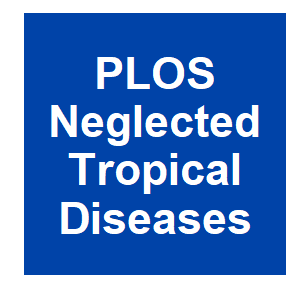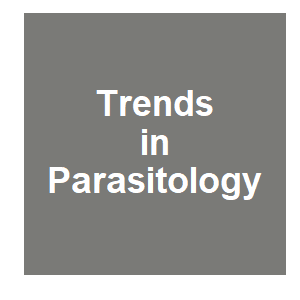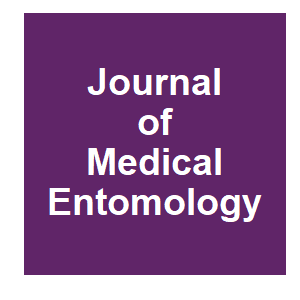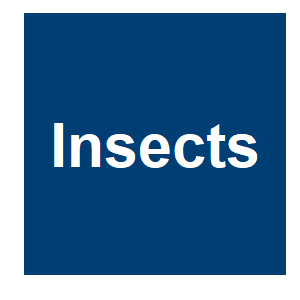
Keywords: arbovirus

|
Detection and quantification of natural Wolbachia in Aedes aegypti in Metropolitan Manila, Philippines using locally designed primersReyes JIL, Suzuki T, Suzuki Y, Watanabe K., Frontiers in Cellular and Infection Microbiology, 2024.
The Philippines bears health and economic burden caused by high dengue cases annually. Presently, the Philippines still lack an effective and sustainable vector management. The use of Wolbachia, a maternally transmitted bacterium, that mitigate arbovirus transmission has been ... Keywords: arbovirus, genetic biocontrol, RNA interference, Vector-borne viruses |

|
Intra-lineage microevolution of Wolbachia leads to the emergence of new cytoplasmic incompatibility patternsNamias A, Ngaku A, Makoundou P, Unal S, Sicard M, Weill M, PLoS Biology, 2024.
Mosquitoes of the Culex pipiens complex are worldwide vectors of arbovirus, filarial nematodes, and avian malaria agents. In these hosts, the endosymbiotic bacteria Wolbachia induce cytoplasmic incompatibility (CI), i.e., reduced embryo viability in so-called incompatible ... Keywords: arbovirus, genetic biocontrol, RNA interference, Vector-borne viruses |

|
Antiviral Wolbachia strains associate with Aedes aegypti endoplasmic reticulum membranes and induce lipid droplet formation to restrict dengue virus replicationRobson K. Loterio, Ebony A. Monson, Rachel Templin, Jyotika T. de Bruyne, Heather A. Flores, Jason M. Mackenzie, Georg Ramm, Karla J. Helbig, Cameron P. Simmons, Johanna E. Fraser, Applied and Environmental Microbiology, 2023.
Wolbachia are a genus of insect endosymbiotic bacteria which includes strains wMel and wAlbB that are being utilized as a biocontrol tool to reduce the incidence of Aedes aegypti-transmitted viral diseases like dengue. However, the precise mechanisms underpinning the antiviral ... Keywords: arbovirus, genetic biocontrol, RNA interference, Vector-borne viruses |

|
Scientists disable protective gene in mosquitoes, making them susceptible to diseaseTexas A&M University, Phys Org, 2023.
Immune pathways that protect mosquitoes from human pathogens, including West Nile, Zika and dengue viruses were disabled by Texas A&M AgriLife Research scientists. The research study, "RNA interference is essential to modulating the pathogenesis of mosquito-borne viruses in the ... Keywords: arbovirus, genetic biocontrol, RNA interference, Vector-borne viruses |

|
Engineered Antiviral Sensor Targets Infected MosquitoesE. Dalla Benetta, A. J. Lopez-Denman, H.-H. Li, R. A. Masri, D. J. Brogan, M. Bui, T. Yang, M. Li, M. Dunn, M. J. Klein, S. Jackson, K. Catalan, K. R. Blasdell, P. Tng, I. Antoshechkin, L. S. Alphey, P. N. Paradkar and O. Akbari, bioRxiv, 2023.01.27.525922. 2023.
Escalating vector disease burdens pose significant global health risks, so innovative tools for targeting mosquitoes are critical. We engineered an antiviral strategy termed REAPER (vRNA Expression Activates Poisonous Effector Ribonuclease) that leverages the programmable ... Keywords: arbovirus, genetic biocontrol, RNA interference, Vector-borne viruses |

|
Externalities modulate the effectiveness of the Wolbachia release programmeE. E. Ooi and A. Wilder-Smith, The Lancet Infectious Diseases, 2022.
Despite the remarkable outcome in Yogyakarta, the wMel approach also has some challenges. In particular, the extent to which ecological, weather, and other external factors influence the dissemination and establishment of wMel in complex urban environments remains unclear. ... Keywords: arbovirus, genetic biocontrol, RNA interference, Vector-borne viruses |

|
Outbreaks of arboviruses, biotechnological innovations and vector control: facing the unexpectedC. Boëte, Innovative Strategies for Vector Control, 6:219-231. 2022.
Outbreaks of arboviruses have occurred in the last decades in many places around the world and a variety of responses have been taken in order to control them. Responses ranged from vaccination campaigns to the use of conventional vector control methods. Innovative approaches ... Keywords: arbovirus, genetic biocontrol, RNA interference, Vector-borne viruses |

|
Changing mosquito genes, spreading bacteria: Science sees success vs dengueC. E. Baclig, INQUIRER.NET, 2022.
Wolbachia, according to WMP, are extremely common bacteria that occur naturally in 50 percent of insect species, including mosquitoes, fruit flies, moths, dragonflies, and butterflies. Aedes aegypti or dengue-carrying mosquitoes, however, do not normally carry Wolbachia. Studies ... Keywords: arbovirus, genetic biocontrol, RNA interference, Vector-borne viruses |

|
Intron-derived small RNAs for silencing viral RNAs in mosquito cellsP. Y. L. Tng, L. Z. Carabajal Paladino, M. A. E. Anderson, Z. N. Adelman, R. Fragkoudis, R. Noad and L. Alphey, PLOS Neglected Tropical Diseases, 16:e0010548. 2022.
Aedes aegypti and Ae. albopictus are the main vectors of mosquito-borne viruses of medical and veterinary significance. Many of these viruses have RNA genomes. Exogenously provided, e.g. transgene encoded, small RNAs could be used to inhibit virus replication, breaking the ... Keywords: arbovirus, genetic biocontrol, RNA interference, Vector-borne viruses |

|
Novel molecular approaches to combat vectors and vector-borne viruses: Special focus on RNA interference (RNAi) mechanismsA. Agarwal, D. K. Sarma, D. Chaurasia and H. S. Maan, Acta Tropica, 2022.
Vector-borne diseases, such as dengue, chikungunya, zika, yellow fever etc pose significant burden among the infectious diseases globally, especially in tropical and sub-tropical regions. Globalization, deforestation, urbanization, climate change, uncontrolled population growth, ... Keywords: arbovirus, genetic biocontrol, RNA interference, Vector-borne viruses |

|
Transient Introgression of Wolbachia into Aedes aegypti Populations Does Not Elicit an Antibody Response to Wolbachia Surface Protein in Community MembersE. Lee, T. Hien Nguyen, T. Yen Nguyen, S. Nam Vu, N. Duong Tran, L. Trung Nghia, Q. Mai Vien, T. Dong Nguyen, R. Kriiger Loterio, I. Iturbe-Ormaetxe, H. A. Flores, S. L. O'Neill, D. Anh Dang, C. P. Simmons and J. E. Fraser, Pathogens, 11. 2022.
Wolbachia is an endosymbiotic bacterium that can restrict the transmission of human pathogenic viruses by Aedes aegypti mosquitoes. Recent field trials have shown that dengue incidence is significantly reduced when Wolbachia is introgressed into the local Ae. aegypti population. ... Keywords: arbovirus, genetic biocontrol, RNA interference, Vector-borne viruses |

|
Wolbachia: Biological Control Strategy Against Arboviral DiseasesI. Mohanty, A. Rath and R. K. Hazra, Genetically Modified and other Innovative Vector Control Technologies, 2021.
Arboviral diseases like dengue, chikungunya, and Zika are among the major causes of mortality and morbidity in human population. The limited control methods together with lack of antiviral therapies and effective vaccines have paved way for new approaches. One such approach to ... Keywords: arbovirus, genetic biocontrol, RNA interference, Vector-borne viruses |

|
Prevalence and molecular characterization of Wolbachia in field-collected Aedes albopictus, Anopheles sinensis, Armigeres subalbatus, Culex pipiens and Cx. tritaeniorhynchus in ChinaY. Yang, Y. He, G. Zhu, J. Zhang, Z. Gong, S. Huang, G. Lu, Y. Peng, Y. Meng, X. Hao, C. Wang, J. Sun and S. Shang, PLOS Neglected Tropical Diseases, 15:e0009911. 2021.
Wolbachia are maternally transmitted intracellular bacteria that can naturally and artificially infect arthropods and nematodes. Recently, they were applied to control the spread of mosquito-borne pathogens by causing cytoplasmic incompatibility (CI) between germ cells of females ... Keywords: arbovirus, genetic biocontrol, RNA interference, Vector-borne viruses |

|
A decade of stability for wMel Wolbachia in natural Aedes aegypti populationsP. A. Ross, K. L. Robinson, Q. Yang, A. G. Callahan, T. L. Schmidt, J. K. Axford, M. P. Coquilleau, K. M. Staunton, M. Townsend, S. A. Ritchie, M.-J. Lau, X. Gu and A. A. Hoffmann, bioRxiv, 2021.10.27.466190. 2021.
Mosquitoes carrying Wolbachia endosymbionts are being released in many countries for arbovirus control. The wMel strain of Wolbachia blocks Aedes-borne virus transmission and can spread throughout mosquito populations by inducing cytoplasmic incompatibility. Aedes aegypti ... Keywords: arbovirus, genetic biocontrol, RNA interference, Vector-borne viruses |

|
RNA virome diversity and Wolbachia infection in individual Drosophila simulans fliesA. S. Ortiz-Baez, M. Shi, A. A. Hoffmann and E. C. Holmes, Journal of General Virology, 102. 2021.
The endosymbiont bacteria of the genus Wolbachia are associated with multiple mutualistic effects on insect biology, including nutritional and antiviral properties. Members of the genus Wolbachia naturally occur in fly species of the genus Drosophila, providing an operational ... Keywords: arbovirus, genetic biocontrol, RNA interference, Vector-borne viruses |

|
Novel Symbiotic Genome-Scale Model Reveals Wolbachia’s Arboviral Pathogen Blocking Mechanism in Aedes aegyptiN. E. Jiménez, Z. P. Gerdtzen, Á. Olivera-Nappa, J. C. Salgado and C. Conca, mBio, e0156321. 2021.Arboviral diseases such as Zika and Dengue have been on the rise mainly due to climate change, and the development of new treatments and strategies to limit their spreading is needed. The use of Wolbachia as an approach for disease control has motivated new research related to ... Keywords: arbovirus, genetic biocontrol, RNA interference, Vector-borne viruses |

|
Structural and mechanistic insights into the complexes formed by Wolbachia cytoplasmic incompatibility factorsY. Xiao, H. Chen, H. Wang, M. Zhang, X. Chen, J. M. Berk, L. Zhang, Y. Wei, W. Li, W. Cui, F. Wang, Q. Wang, C. Cui, T. Li, C. Chen, S. Ye, L. Zhang, X. Ji, J. Huang, W. Wang, Z. Wang, M. Hochstrasser and H. Yang, Proceedings of the National Academy of Sciences, 118. 2021.
Wolbachia bacteria, inherited through the female germ line, infect a large fraction of arthropod species. Many Wolbachia strains manipulate host reproduction, most commonly through cytoplasmic incompatibility (CI). CI, a conditional male sterility, results when Wolbachia-infected ... Keywords: arbovirus, genetic biocontrol, RNA interference, Vector-borne viruses |

|
Wolbachia as translational science: controlling mosquito-borne pathogensE. P. Caragata, H. L. C. Dutra, P. H. F. Sucupira, A. G. A. Ferreira and L. A. Moreira, Trends in Parasitology, 2021.
In this review we examine how exploiting the Wolbachia?mosquito relationship has become an increasingly popular strategy for controlling arbovirus transmission. Field deployments of Wolbachia-infected mosquitoes have led to significant decreases in dengue virus incidence via high ... Keywords: arbovirus, genetic biocontrol, RNA interference, Vector-borne viruses |

|
Current Effector and Gene-Drive Developments to Engineer Arbovirus-Resistant Aedes aegypti (Diptera: Culicidae) for a Sustainable Population Replacement Strategy in the FieldW. R. Reid, K. E. Olson and A. W. E. Franz, J Med Entomol, 2021.
Conventional mosquito control efforts based on insecticide treatments and/or the use of bednets and window curtains are currently insufficient to reduce arbovirus prevalence in affected regions. Novel, genetic strategies that are being developed involve the genetic manipulation ... Keywords: arbovirus, genetic biocontrol, RNA interference, Vector-borne viruses |

|
How to engage communities on a large scale? Lessons from World Mosquito Program in Rio de Janeiro, Brazil [version 2; peer review: 1 approved, 2 approved with reservations]G. B. Costa, R. Smithyman, S. L. O'Neill and L. A. Moreira, Gates Open Research, 2021.
Here we discuss and analyse the framework for community engagement implemented by the WMP in Brazil, during the large-scale deployment of the method in the municipalities of Niterói and Rio de Janeiro, Brazil. Our experience indicates that the community engagement work for ... Keywords: arbovirus, genetic biocontrol, RNA interference, Vector-borne viruses |

|
Mosquitoes genetically modified to be resistant to ZikaStaff, Lab+Life Scientist, 2021.
Researchers have wrestled with different strategies for controlling the spread of Zika virus, which is transmitted to humans from female mosquito bites. One approach, which has been approved by the US Environmental Protection Agency, will see more than 750 million genetically ... Keywords: arbovirus, genetic biocontrol, RNA interference, Vector-borne viruses |

|
Genetically-modified mosquitoes key to stopping Zika virus spreadUniversity of Missouri, Medical Xpress, 2021.
Alexander Franz, an associate professor in the MU College of Veterinary Medicine, collaborated with researchers at Colorado State University by using CRISPR gene-editing technology to produce mosquitoes that are unable to replicate Zika virus and therefore cannot infect a human ... Keywords: arbovirus, genetic biocontrol, RNA interference, Vector-borne viruses |

|
Wolbachia strain wAlbB maintains high density and dengue inhibition following introduction into a field population of Aedes aegyptiN. A. Ahmad, M.-V. Mancini, T. H. Ant, J. Martinez, G. M. R. Kamarul, W. A. Nazni, A. A. Hoffmann and S. P. Sinkins, Philosophical Transactions of the Royal Society B: Biological Sciences, 376:20190809. 2020.
Here, wAlbB-carrying Ae. aegypti collected from the field 20 months after the cessation of releases showed no reduction in Wolbachia density or tissue distribution changes compared to a wAlbB laboratory colony. The wAlbB strain continued to induce complete unidirectional ... Keywords: arbovirus, genetic biocontrol, RNA interference, Vector-borne viruses |

|
The Antiviral Small-Interfering RNA Pathway Induces Zika Virus Resistance in Transgenic Aedes aegyptiA. E. Williams, I. Sanchez-Vargas, W. R. Reid, J. Y. Lin, A. W. E. Franz and K. E. Olson, Viruses, 12:18. 2020.
We used CRISPR/Cas9 to re-target a previously characterized locus (Chr2:321382225) and engineered mosquitoes expressing an inverted repeat (IR) dsRNA against the NS3/4A region of the ZIKV genome. Small RNA analysis revealed that the IR effector triggered the mosquito's siRNA ... Keywords: arbovirus, genetic biocontrol, RNA interference, Vector-borne viruses |

|
Reply to: “Enhancement of Aedes aegypti susceptibility to dengue by Wolbachia is not supported”C. Souto-Maior, J. G. King, L. M. Sartori, R. Maciel-de-Freitas and M. G. M. Gomes, Nature Communications, 11:6113. 2020.
Ant et al.4 claim that concerns with the data and broader analysis make our conclusions misleading. We herein respond to their comments by demonstrating the robustness of our results to different treatments of the data, and expand our arguments for replacing currently adopted ... Keywords: arbovirus, genetic biocontrol, RNA interference, Vector-borne viruses |

|
Enhancement of Aedes aegypti susceptibility to dengue by Wolbachia is not supportedT. H. Ant, M.-V. Mancini, J. Martinez and S. P. Sinkins, Nature Communications, 11:6111. 2020.
King et al.3 used DENV infection and transmission modelling to reinterpret experimental data from two previous studies4,5. The authors claimed that wMel Wolbachia increase the mean susceptibility of Ae. aegypti to DENV, contradicting various other studies6,7,8,9,10,11,12. Here, ... Keywords: arbovirus, genetic biocontrol, RNA interference, Vector-borne viruses |

|
Artificial Selection Finds New Hypotheses for the Mechanism of Wolbachia-Mediated Dengue Blocking in MosquitoesS. A. Ford, I. Albert, S. L. Allen, S. F. Chenoweth, M. Jones, C. Koh, A. Sebastian, L. T. Sigle and E. A. McGraw, Frontiers in Microbiology, 11:1456. 2020.
We recently used experimental evolution to reveal that Wolbachia-mediated dengue blocking could be selected upon in the A. aegypti host and showed evidence that strong levels of blocking could be maintained by natural selection. In this study, we investigate the genetic variation ... Keywords: arbovirus, genetic biocontrol, RNA interference, Vector-borne viruses |

|
Antiviral effectors and gene drive strategies for mosquito population suppression or replacement to mitigate arbovirus transmission by Aedes aegyptiA. E. Williams, A. W. E. Franz, W. R. Reid and K. E. Olson, Insects, 11:1-18. 2020.
The mosquito vector Aedes aegypti transmits arthropod-borne viruses (arboviruses) of medical importance, including Zika, dengue, and yellow fever viruses. Controlling mosquito populations remains the method of choice to prevent disease transmission. Novel mosquito control ... Keywords: arbovirus, genetic biocontrol, RNA interference, Vector-borne viruses |

Contact
David O’Brochta
Foundation for the
National Institutes of Health
geneconvenevi@fnih.org
RSS

